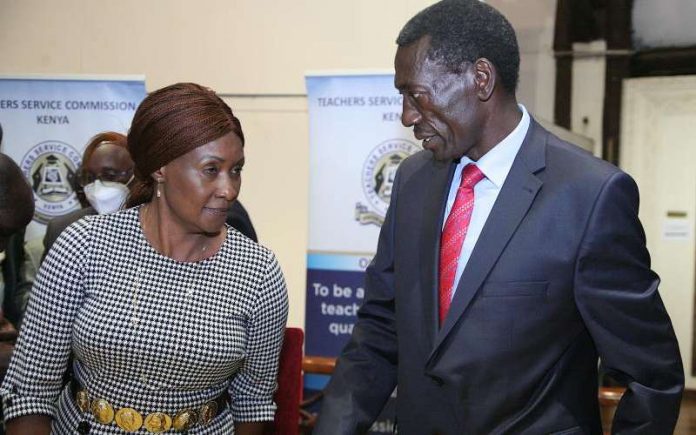The Teachers Service Commission has laid off 64 teachers after being found guilty of various offences.
Thirty eight 38 teachers were sacked after a disciplinary process was conducted while the remaining 26 lost their jobs for using fake certificates during recruitment.
Read also: Teachers Service Commission-TSC Offences and evidence required for interdiction
According to a gazette notice dated April 14, TSC chief executive officer Nancy Macharia stated that teachers whose names have been struck off the register shall not be reinstated except by the direction of the commission.
“In exercise of powers conferred by section 30 (1) (e) of the Teachers Service Commission Act Chapter 212 of the Laws of Kenya, the Commission wishes to notify the public the persons whose names are specified in the schedule herein below have been removed from the register of teachers pursuant to the provision of section 30 (2) of the TSC Act,” the notice said.
The TSC Boss also said that persons whose names have been removed from the register cease to be teachers with effect from the date of the notice. She furtherwarned schools against allowing persons removed from the register to teach or assist in teaching.
“A person shall not engage in the teaching service unless such a person is registered as a teacher under this Act,” she said.
Teachers who breach the provisions of the Code of Regulations for Teachers and the TSC Code of Conduct and Ethics usually face disciplinary action which may include warning or interdiction.
Disciplinary Process
1. A Head of institution may initially issue a verbal warning or caution the teacher in writing on minor breaches.
2. In case of persistent misbehaviour, the teacher may be required to show cause why disciplinary action should not be taken against him/her.
3. From the teacher’s response, the head of institution may serve the teacher with a warning or present the case before the agent.


